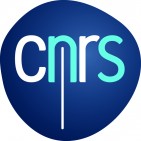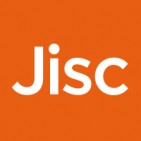Knowledge Exchange is a collaboration between six national organisations, each responsible for supporting the development of ICT infrastructure for higher education and research.
Our six partners share a clear vision that scholarship should be open. Through Knowledge Exchange we are working together to support the development of digital infrastructure to enable open scholarship. We are raising our collective voice to inform national and international policies and promote common approaches, so that it becomes easier for scholarship to cross national boundaries.
We share our knowledge, experiences and resources.

CNRS
The National Centre for Scientific Research (CNRS - Centre national de la recherche scientifique) is a public organization under the responsibility of the French Ministry of Education and Research. Largest fundamental research organization in Europe, it produces knowledge in all major scientific disciplines and puts this knowledge at the service of society.
With nearly 32,000 staff (of which over 24,600 are permanent 11,100 researchers and 13,500 engineers, technicians and administrative personnel) and a budget of 3.3 milliards of euros for 2015, of which 770 million euros come from its own resources, the CNRS has about 1,100 laboratories (or research units) throughout France and abroad, the large majority of which operate in partnership with universities, other research organizations, or industry.
A decree of November 1982 focusing on the organization and functioning of the CNRS advises that the organization has a national vocation to "develop scientific information". This position was re-affirmed and intensified by the contribution of the CNRS to the National Research Strategy (June 2013).
The Department of Scientific and Technical Information (DIST) is the main CNRS instance to fulfill this role. More generally, DIST, headed by Renaud Fabre, often acts as driving force for common strategies and developments in scholarly information for the French higher education and research communities, e.g. in the context of the 2016 Digital Republic Act.
DIST is also supervising body for several CNRS units, including:
- INIST (Institute for Scientific and Technical Information), the biggest (over 200 staff), created in 1988 to facilitate access to results from all fields of world research and providing a broad range of information services, with a recent focus on the field of research data. INIST is strongly involved, on behalf of CNRS, in the national ISTEX project, within the "Investments for the Future" program initiated by the French Government.
- CCSD (Center for Direct Scientific Communication), created by CNRS in 2000 and today jointly governed with Inria and Lyon University. CCSD runs the HAL national open archive, to which many institutional repositories are connected.
- Cléo (Centrefor open electronic publishing)/ OpenEdition, gathering four complementary platforms that offer a complete electronic publishing framework for academic research and communication, making tens of thousands of scholarly documents available in open access. CNRS has a leading role, as one of 4 partners in Cléo.

CSC
CSC IT Center for Science Ltd is administered by the Ministry of Education, Science and Culture. CSC is a non-profit company providing IT support and resources for academia, research institutes and companies: modelling, computing and information services. CSC provides Finland's widest selection of scientific software and databases and Finland's most powerful supercomputing environment that researchers can use via the Funet network.
It offers services in the following areas:
Data services for science and culture
Solutions for data storage, management and analysis needs.
Funet network services
Fast backbone network for academia Versatile network services.
Computing services
High-performance computing and IT consulting services.
Application services
Support, development and infrastructure for computational science and engineering
Information management services
CSC provides and develops reliable, cost-effective and centralised information technology services for the needs of academia, research institutes, state administration and companies.

DeiC
The Danish e-infrastructure Consortium (DeiC) coordinates Danish digital infrastructure as an umbrella for the eight Danish universities to ensure delivery of computing, storage and network infrastructure to Danish research, teaching and innovation. DeiC coordinates Danish participation in Nordic and European e-infrastructure organisations and projects

DFG
The DFG is the self-governing organisation for science and research in Germany. It serves all branches of science and the humanities. In organisational terms, the DFG is an association under private law. Its membership consists of German research universities, non-university research institutions, scientific associations and the Academies of Science and the Humanities.
The DFG receives the large majority of its funds from the federal government and the states, which are represented in all grants committees. At the same time, the voting system and procedural regulations guarantee science-driven decisions.
The assignments of Knowledge Exchange are carried out by DFG staff who belongs to the Division which is responsible for funding Scientific Library Services and Information Systems (LIS). The purpose of this group is to establish effective information services and innovative information infrastructures suited to meet the needs of the research community at German universities and research institutions.
The funding opportunities offered by the Scientific Library Services and Information Systems Division are divided into programmes and calls for proposals. For example, the funding opportunities includes Licences for Digital Content, Indexing and Digitisation, Infrastructure for Electronic Publications and the Digital Communication of Science, Open Access Publishing as well as Information Infrastructures for Research Data.
Dr. Johannes Fournier, Dr. Matthias Katerbow, and Dr. Juliane Kant represent the DFG within Knowledge Exchange.

Jisc
Jisc is the UK higher, further education and skills sector's not-for-profit organisation for digital services and solutions and became a registered charity in December 2012.
It operates an institutional membership subscription and the majority of its funding comes from the UK higher education and further education funding bodies. At its core, Jisc delivers services to address research enablement; teaching, learning and student experience; sector and enterprise efficiency; and skills development.
Jisc champions the importance and potential of digital technologies for UK education and research; and does three main things:
- Operates shared digital infrastructure and services
- Negotiates sector-wide deals with IT vendors and commercial publishers
- Provides trusted advice and practical assistance for universities, colleges and learning providers
For more information take a look at the Jisc website and follow the latest developments on Twitter.

SURF
SURF's mission is to enhance the quality of Dutch higher education and research through innovations in ICT. SURF makes its innovations available on favourable terms and ensures that optimum use can be made of the possibilities offered by ICT. The innovations of SURF have an impact on society that extends further than the institutions themselves.
Mission
SURF ensures that students, lecturers and researchers in higher education and research have access to the best possible ICT resources on favourable terms for the purpose of top-level research and talent development in national and international collaboration. SURF therefore develops, innovates and operates an advanced, federated e-infrastructure in conjunction with the institutions. SURF also organises demand aggregation, collaboration and knowledge sharing in relation to ICT themes for the member institutions. Creation of added value for its end users is pivotal in the service provided by SURF.
Target group
SURF serves students, lecturers, researchers, executive and other staff of the Dutch higher education and research institutions. This includes research universities and universities of applied sciences, university teaching hospitals, research institutions and senior secondary vocational education institutions.
Strategic themes
The activities of SURF have emerged from a number of current themes that are of strategic importance in the field of ICT, education and research. Every 4 years, the themes are reviewed in conjunction with the member institutions, and recorded in the SURF strategic plan. The strategic themes in the 2015-2018 Strategic Plan have been transformed into 10 innovation programmes that are implemented jointly by SURFmarket, SURFnet and SURFsara. In all these themes, SURF's priority is open innovation. Each year, SURF and its operating companies publish annual plans containing the concrete activities for that year. The annual reports provide a periodic overview of the activities carried out and the results achieved.
Collaboration
By working together in SURF, the higher education and research institutions realise innovations on a scale that they would be unable to achieve individually. SURF facilitates knowledge sharing between the participating institutions, one example of this being the special interest groups (SIGs) in which experts jointly develop knowledge relating to current ICT themes. For the Netherlands to retain its leading position in the field of ICT, cooperation is essential. Read more about national cooperation and our international collaboration partners.






